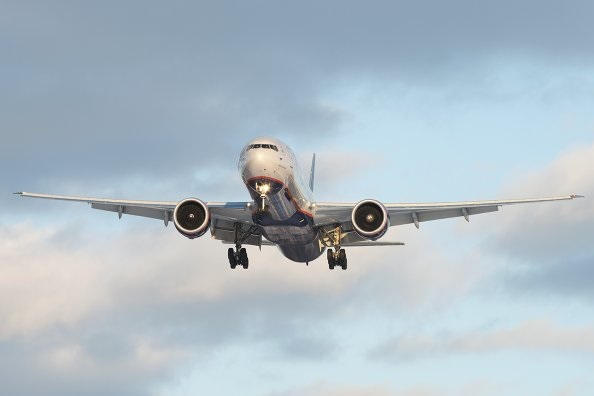The aviation industry is taking a “broad set of actions” to curtail carbon emissions, says the Aerospace Industries Association.
Such action is urgently needed as aviation is one of the fastest-growing sources of the greenhouse gas emissions driving global climate change.
Flying is a highly controversial topic in climate debates and accounts for around 2.5% of global CO₂ emissions.
Since 1960, aviation emissions increased almost seven-fold; since 1970 they’ve tripled.
In fact, if the entire aviation sector were a country, it would be one of the top 10 carbon-polluting nations on the planet.
WWF, the charity, estimates that a passenger taking flight from New York to London and back emits more emissions than an average person in Paraguay over the course of an entire year.
Without action, emissions from increased air travel could triple from pre-COVID levels by 2050, it says.
But there is some good news partly because aviation efficiency has seen massive improvements.
These improvements have come from several sources including improvements in the design and technology of aircraft; larger aircraft sizes (allowing for more passengers per flight); and an increase in how ‘full’ passenger flights are.
There are also the efforts made by airlines themselves showing how the industry is “doing its bit” to cut emissions.
Emirates, for example, has recycled over 500,000 kilograms of plastic and glass in 2022, collecting discarded bottles on board for reuse.
It is worth noting that 500,000 kilograms is almost the same as a fully loaded Emirates flagship A380.
This is how the “environmental friendly” scheme works.
On board every flight that lands in Dubai, Emirates cabin crew methodically separates glass and plastic bottles, before they are sent to a recycling plant in the city.
The glass is separated by colour and crushed. This “cullet” or recycled glass, ready to be remelted, is then sent to glass manufacturers in the United Arab Emirates to be included in their batch mix for new bottles. Plastic bottles are cleaned, cut into flakes, melted into pellets and sent to manufacturers to make other plastic products.
Through this meticulous sorting, the airline’s flight catering is able to divert thousands of kilograms of glass and plastic every year landfills.
The onboard glass and plastic recycling initiative was, in fact, suggested by the company’s very own – environmentally conscious – cabin crew in 2019 via webinars and regular events.
This is a platform provided by the company which gives staff a chance to share their feedback and share innovative ideas.
A company spokesman said, “The proposal was well received and implemented within weeks.”
Emirates has several other initiatives that focus on plastic reuse or the use of sustainable materials where possible. For example,it offers durable blankets made from recycled plastic bottles to economy passengers on long-haul flights.
The blankets are made from 28 recycled plastic bottles. The bottles are shredded into plastic shavings before being made into yarn, creating a fleece material. The fine yarn is then woven into soft blankets. Over the past 6 years since the initiative was introduced, the blankets have prevented more than 95 million bottles plastic from going to the landfill.
This is all music to the ears of groups like WWF which is working closely with a diverse array of leading international voices to encourage the aviation industry, government, and the United Nations body in charge of international aviation policy–the International Civil Aviation Organization (ICAO)–to adopt policies and measures to slash the industry’s skyrocketing emissions and limit the effects of the climate crisis.
The public show little sign of falling out of love with flying so, looking to the future, all eyes will be on how the industry itself continues to help contribute to the worrying impact of global warming.




